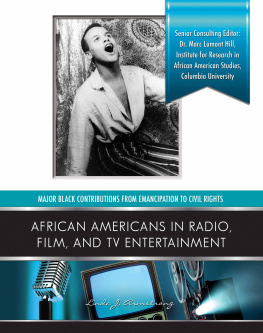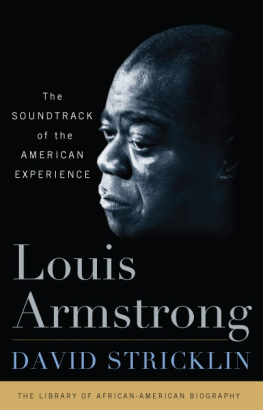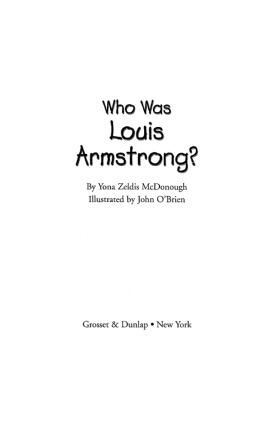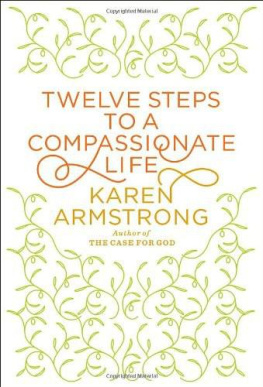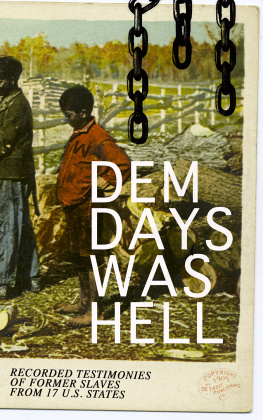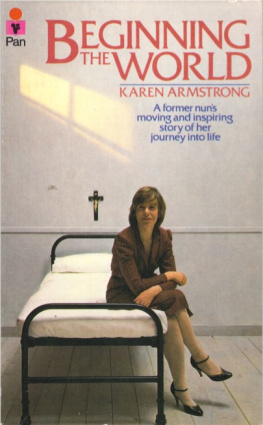2021 American Freedom Publications LLC
All rights reserved. No part of this book may be reproduced or utilized in any form or by any means, electronic or mechanical, including photocopying, recording or by any information storage retrieval system without permission in writing from the publisher, except for a reviewer who may quote brief passages in a review to be printed in a newspaper, magazine or electronic publication. www.americanfreedompublications.com
2638 E. Wildwood Road
Springfield, Missouri 65804
ISBN 978-1-63752-381-0 Hardback Version
ISBN 978-1-63752-382-7 Paperback Version
ISBN 978-1-63752-383-4 E-book Version
Cover Design-Christopher M. Capages
www.capagescreative.com
Second Edition- February 12, 2021
Printed in the United States of America

TABLE OF CONTENTS
TABLE OF CONTENTS
FOREWORD
FOREWORD
Orland Kay Armstrong was a husband, father, freelance journalist, writer, publisher and educator. He would found the University of Floridas School of Journalism and go on to become the United States Congressman from the 6th District of Missouri. Armstrong was a crusader for Justice and warrior for Truth, inspired by his Faith to serve his fellow citizens. He was a brilliant and well-educated man. He had many earned academic degrees and would go on to receive many other honorary degrees before he passed away on April 15, 1987 in Springfield, Missouri.
Orland Kay Armstrong was referred to as O. K., by his friends. He was an often reluctant, but aggressive warrior who sought the Truth, defended Liberty and was a crusader for Peace and champion of the Underdog. His contributions to these righteous causes have gone unrecognized even in the state of his birth, Missouri. Here you have a man who fought for the recognition of African-Americans as equal citizens before there was a Civil Rights movement. He also brought to the forefront the plight of Native Americans and proposed corrective actions.
This book was originally published in 1931 by Bobbs-Merrill Company of Indianapolis. Armstrong spent many years during the Great Depression researching this portrayal of the culture of old Dixie by interviewing, in every state of the old Confederacy, more than twelve hundred former slaves in their ninth to eleventh decades of life. He was skilled as an interviewer, making his subjects feel at ease. He was at home with any group without regard to its members profession or to their current or ancestral culture. The original purpose of the book was to depict the Old South as the Negro saw it. The book compiles the stories of those brought into the sphere of cruel traders and owners as depicted in the critically acclaimed ROOTS by Alex Haley as well as the stories of those more fortunate, of whom Mammy in Margaret Mitchells Gone with the Wind is a reminder. Many of these slaves were brought into the inner sanctum of the owners family, but many others were not. Slavery was, and still is an evil practice the exists in some parts of the world.
Armstrong recorded the interviews in this book in their vernacular and did so with a respect, fondness or even a kinship with those he interviewed. He wrote in the margin of his 1930 notes for the book: What they need: 1) Justice; 2) Education; 3) Special industrial training --Make the Negro an asset.
O. K. Armstrong was an early proponent of civil rights for African-Americans and Native Americans. Today, political forces have distorted the truth about the plight of black slaves in the South. The agrarian economy of the South was pre-industrial and slavery was the unfortunate result. Of course there was racial abuse in the South and in the North, that is uncontested, but that was not the norm according to the black slaves themselves. Their story is presented in their own words in OLD MASSAS PEOPLE. The subjects of these interviews often used the n word, so it appears in this book just as in the original publication in 1931.
Recent events have overtaken the truth in this matter and there are evil forces re-writing the history of slavery in America in order to divide the Nation once again. But this book by O. K. Armstrong is an actual history of slavery in the South written by a truly investigative journalist.
While it is clear that those in the Confederacy were traitors to the Union, many were protecting what they thought to be their homeland. This was a decision that General Robert E. Lee made as a Virginian. It was the wrong decision, but the matter was settled with the defeat of the South. The story of Lees defeat at Gettysburg was chronicled by O. K. Armstrong in his book THE FIFTEEN DECISIVE BATTLES OF THE UNITED STATES. An excerpt from that book, Chapter Eleven Lees Defeat at Gettysburg is presented at the end of this book.
The true hero of that earlier time was President Abraham Lincoln who recognized that the Nation would need to heal. Today, while anarchists and Marxists are toppling the statutes of Lee and other symbols of the Confederacy, they are also toppling and defacing statues of Abraham Lincoln, Ulysses S. Grant and even great abolitionists. The mindless mob will never read OLD MASSAS PEOPLE, and that is unfortunate. But herein, the Armstrong family has provided you the opportunity to read about slavery days from the perspective of the slaves themselves and in their own words as published in 1931.
Martin Capages Jr. PhD
Author of SHOW-ME WARRIOR: O. K. Armstrong of Missouri
CHAPTER ONE
US PEOPLE OF OLE VIRGINNY
From Ole Virginny
How you feelin this mawnin? Hopes you feelin well! Me, Ise gettin long fine! This is the cook an body-servant foah Marse Robert E. Lee durin the War, speakin to you! Uncle William Mack Lee bows to you in grand fashion. He holds his big black hat in his hand. His copper-black face, fringed with white beard, is all broken out in smiles while his ancient eyes dance with joy. Uncle William wears a long gray coat, almost covered in front with medals representing attendance at Confederate reunions for many years past. The old colored man chuckles and bows again.
Yes suh, Ise one o the Lee people, from Ole Virginny. Bawn June twelve, eighteen-thutty-seven, at Marse Roberts place in Westmoreland County. One o the fines places in Virginny. Went through the War with Marse Ginneral Lee, an tuk keer o him. Listen, whilst I tell you all some things 'bout the Lee people---



